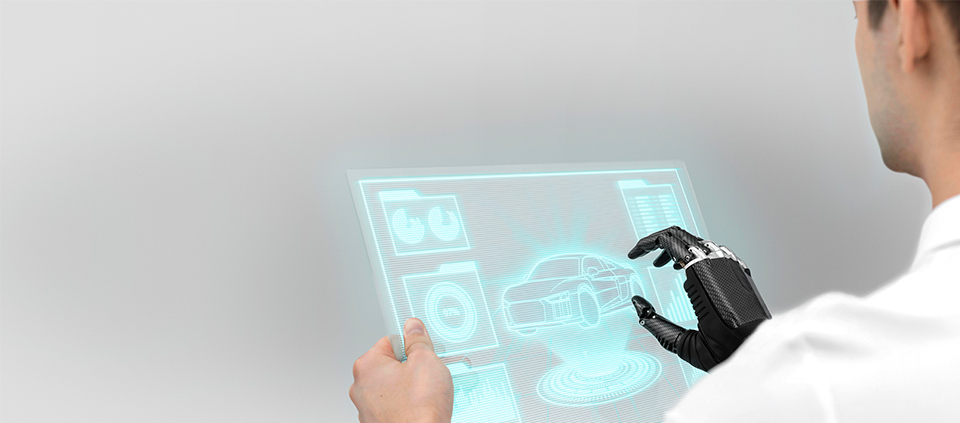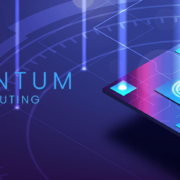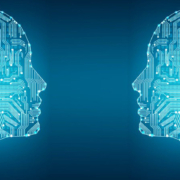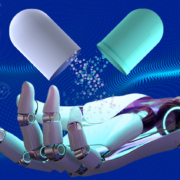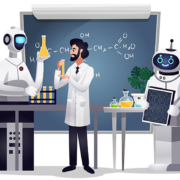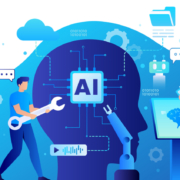New AI Solution Uses Pooled Data for More Advanced Automotive Diagnostics
Protech Automotive Solutions’ ID3 solution leverages the idea that many data points are necessary to achieve the most accurate calibrations for automotive safety features that often need to be recalibrated after a vehicle has been involved in a collision.
ID3, which is pronounced “I-D cubed,” was recently unveiled at the 2022 SEMA Show. It uses proprietary artificial intelligence and machine learning algorithms to identify calibration needs for a given automotive repair after a vehicular collision. While that service exists in many forms today, Protech Vice President of Product Development Don Mikrut says that the key difference with ID3 is that instead of merely returning what kind of calibrations might be needed, ID3 is able to use its knowledge base to deliver more accurate assessments almost instantaneously.
“We start to triangulate all that data through the algorithms and the machine learning that we’ve developed, to come back and say, based on your pre-scan, and the estimated damages, and the OE procedures and knowledge base, we’ve been able to triangulate this,” says Mikrut, hinting at the source of the three in ID3’s name. “Every line of that estimate comes back and tells you this is what needs to be calibrated on this vehicle based on the damages.”
And according to Mikrut, all of that happens in “milliseconds.”
The genesis of the development of the ID3 AI solution was driven by all of the new safety features, such as autobraking and proximity sensors and others that are known as ADAS, for Advanced driver-assistance systems. With the advent of ADAS systems, collision shop owners had to devote a significant amount of time to manually research and determine which ADAS systems needed to be recalculated and how to do so. Existing diagnostic scans could reveal what systems were present on the vehicle but not necessarily which ones were impacted by the collision, which left a process that was open to interpretation and judgment calls by repair techs.
ID3 was developed to solve this issue.
The team at Protech leaned on “30-plus years of building a knowledge base,” according to Mikrut, that encompasses Protech’s acquired expertise as well as data from OEs for ID3 to draw on.
The solution was rolled out in 2022, and as of the start of this year, it is being used in over 1200 locations.
“ADAS ID3 builds on our expertise and history in the vehicle diagnostic industry by revolutionizing the identification of calibration and repair needs, thus saving our technicians and partners time and money,” said Chris Gutierrez, Vice President of Technology Innovation, who led the products development team. “Protech’s focus is to fix vehicles the right way the first time.”
AI, the Auto Industry. and CarTwin
Just as ID3 is leveraging AI to advance vehicle diagnostics and repair calibrations, digital twin solutions like those developed by CarTwin are also taking predictive maintenance to new levels all across the transportation industry.
Digital twin technologies extend the lifespan of cars and other vehicles by monitoring the vehicle’s “health” through its “digital twin.”
Basically, CarTwin can provide diagnostic and predictive models for all vehicle systems for which data is available (either directly or indirectly) onboard the vehicle.
Virtually any part of the vehicle that has sensors or that sensors can be developed for can be “twinned.” These data sets are then enhanced and augmented with design and manufacturing data that is already available by the OEM.
Primarily designed for use in fleets of vehicles, in combination with powerful AI models, CarTwin predicts breakdowns, monitors and improves performance, and measures and records real-time greenhouse gas emissions, which reduces expensive maintenance costs and avoids lost revenue associated with fleet downtime.
It is very likely in the not-too-distant future, ADAS-type technologies will advance to the point where fully autonomous vehicles will replace human-driven fleets of over-road cargo transportation and taxis and limousine services. No doubt, technology such as CarTwin’s will also be incorporated into the algorithms to keep these self-driving vehicles not only safe but on the road longer.
Rohit Mahajan is a Managing Partner at BigRio and the President and Co-Founder of Citadel Discovery. He has a particular expertise in the development and design of innovative AI and machine learning solutions for clients in Healthcare, Financial Services, Retail, Automotive, Manufacturing, and other industry segments.
CarTwin has leveraged AI and Digital Twin technologies to create a digital, cloud-based clone of a physical vehicle designed to detect, prevent, predict, and optimize through AI and real-time analytics. If you would like to benefit from our expertise in these areas or if you have further questions on the content of this article, please do not hesitate to contact us.

